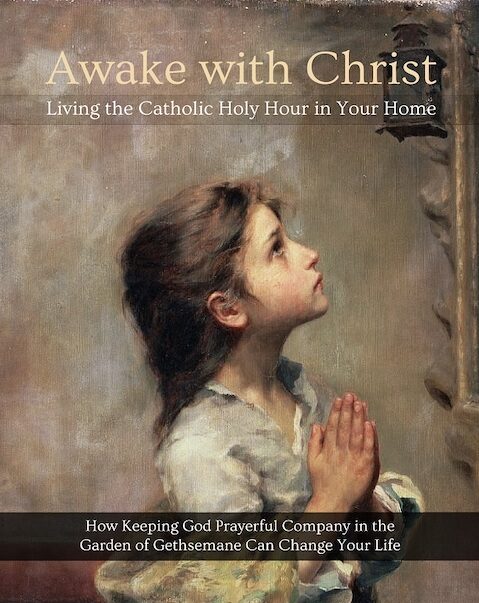PRAY WHEN YOU CAN. The Holy Hour at home can be done of course at ANY time of day and any day of the week, because God cherishes all devout prayer.
BUT… there is a special day and time for this Holy Hour.
Thursday night… the hour of 11pm -12 am is special. It’s the hour Our Lord asked for. There’s a holy opportunity awaiting you, and it’s filled with graces.
KNEEL WHEN YOU CAN You don't have to kneel at all if your knees won't allow it, but if you are healthy and strong enough try to kneel for as much of the time as you can joyfully do so. A good way to start out is kneeling for at least a few moments at the beginning and your opening prayer and closing prayer: a few minutes at the beginning and end and maybe work your way to more as your health allows.
If you're infirm or have tricky knees, don't let that stop you from praying! Chair-bound or bed-bound, you bring Christ much consolation in the Garden that way, too! Just spend time with Him!
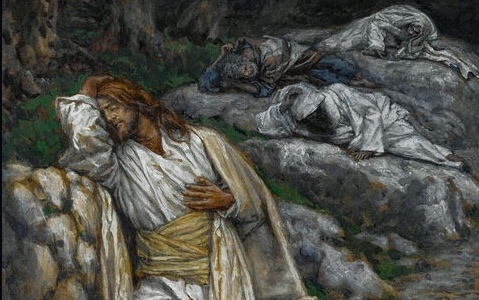

We’re so glad you’re here
Welcome to our Vigil Three of a 7-Thursday Lenten Retreat of guided Holy Hours to console and spend time watching and praying with Our Lord in Gethsemane. Each vigil is unique and independent from the others. ( Please note: if you’re just joining us on the journey now, it’s fine to just pick up from this point on. But if you want to catch up on what you’ve missed, you can check out previous Vigils here. ) Our time will make every Thursday of Lent special by going to Gethsemane in prayer. These Thursdays with Our Lord will make for a more beautiful Lent, very meaningful Triduum, and yet more joyous Easter.
You are in a place set apart where you can console and make reparation to Our Lord, where He was most alone and specifically asked for company! You are not here by accident. He is waiting for you. You’ve been invited… thank you for saying YES!
We invite you to bring your special intentions along with you as you pray, and please leave any prayer intentions below in comments.
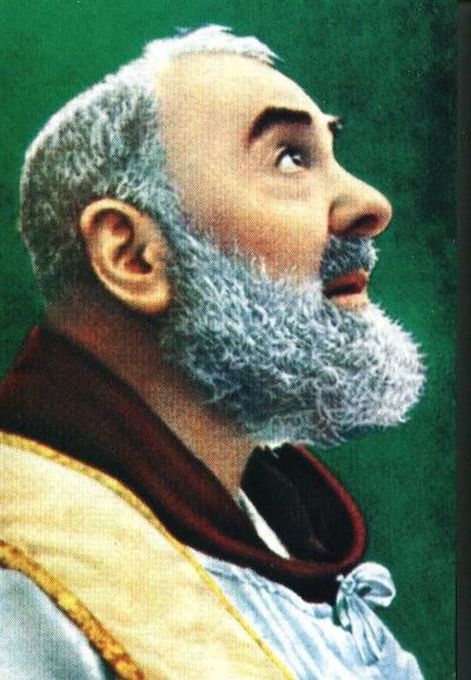
Opening Prayer, by Padre Pio
O suffering Jesus, for the sake of Your inscrutable and indescribable Agonies during that night of betrayal, and of Your bitterest anguish of mind, enlighten me, so that I may recognize and fulfill Your will; grant that I may ponder continually on Your heart-wrenching struggle, and on how You did emerge victoriously, in order to fulfill not Your will, but the will of Your Father.
Amen”
We now seek the intercession of two Carmelite saints who can teach us about doing the Will of God.

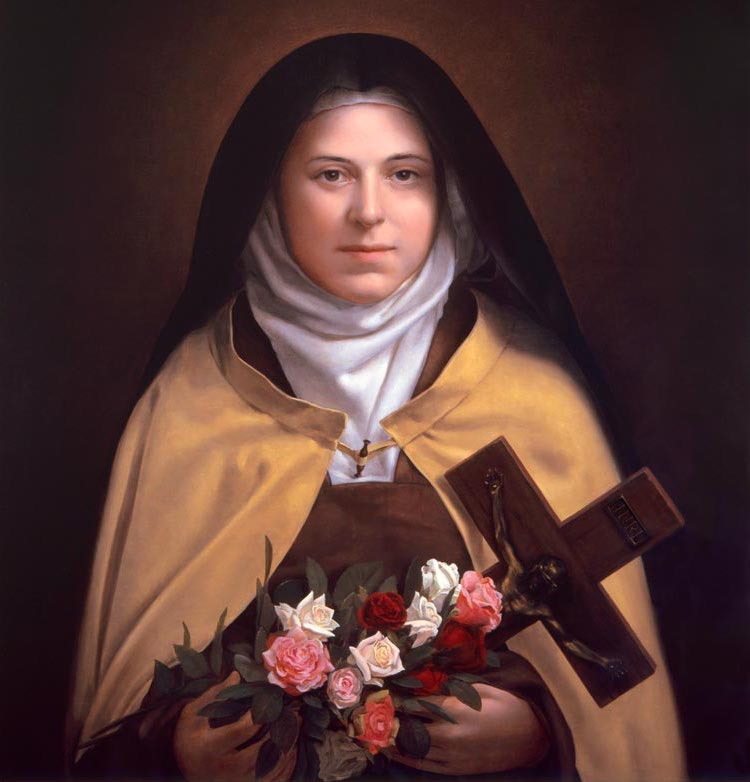
St. Teresa of Avila said,
We can… perfectly resign ourselves to His Will. All else is a hindrance… One caution I give you, not to think of reaching this degree by your own strength or diligence, for it is in vain: even if you had devotion you will remain cold, but only say with humility and simplicity which will obtain everything… “Thy will be done.”
St. Therese of Lisieux said,
Holiness consists simply in doing God’s Will, and being just what God wants us to be.”
St. Teresa and St. Therese, Doctors of the Church, Pray for us!
Lectio Divina
An important part of the Holy Hour Devotion is taking time for contemplation. And so, as a Lectio Divina reflection:
Read, Meditate, Pray, and Contemplate the following passage of Scripture. Which word or phrase moves you the most spiritually, or speaks to you about something you are going through at this time? Which word calls to you to take new action in your life?
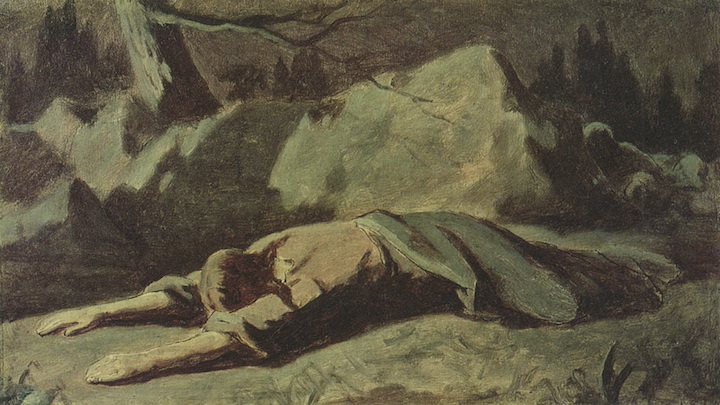
And going a little further, he fell upon his face, praying, and saying: My Father, if it be possible, let this chalice pass from me. Nevertheless not as I will, but as thou wilt.” (MT 26:38)
Let us pause to make an examination of conscience
Ponder and pray: How do YOU try to “do God’s Will?“
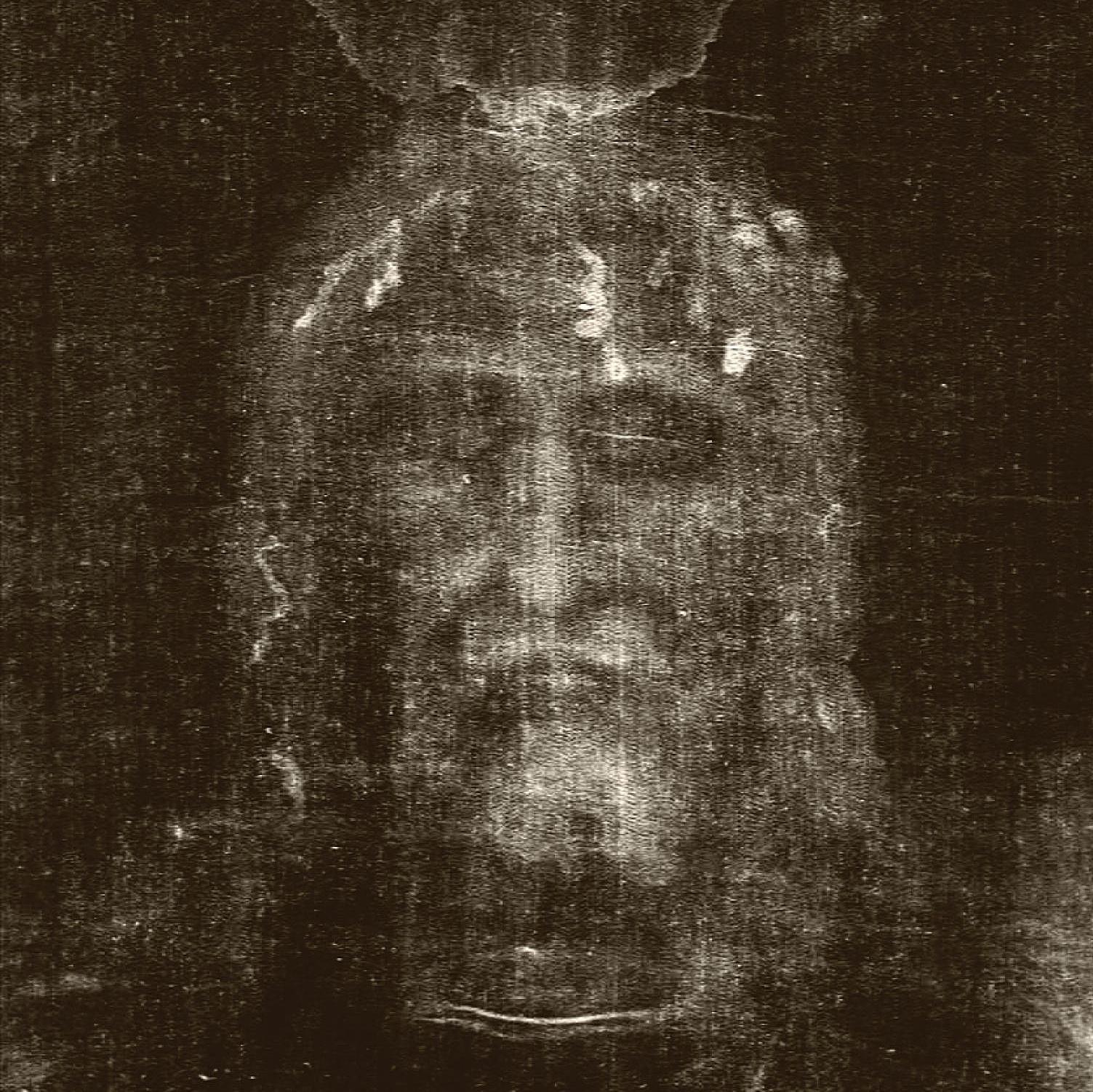
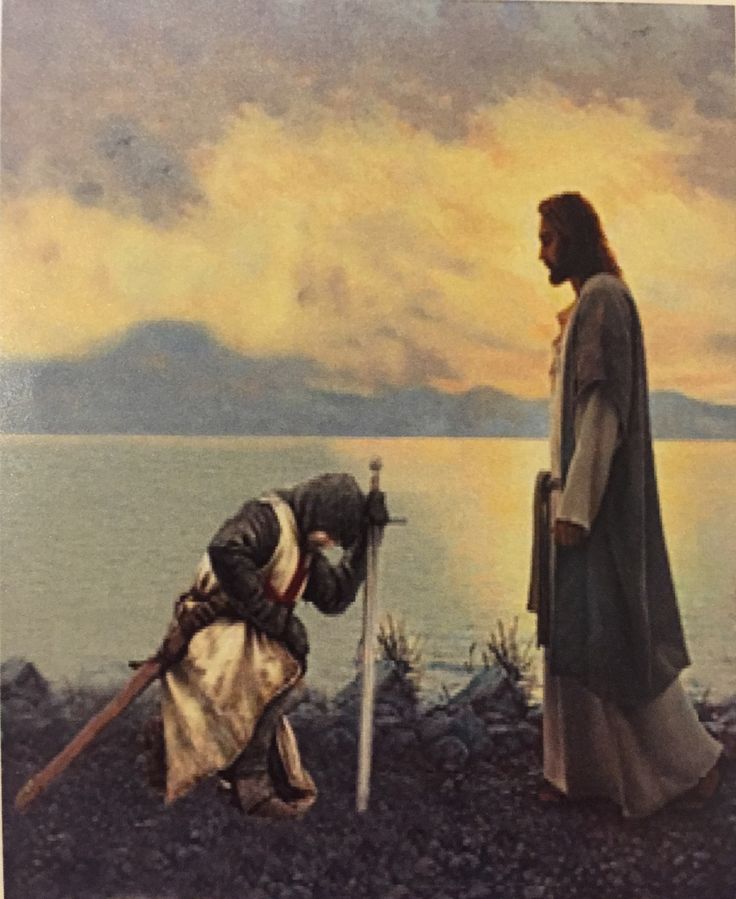
Meditation: The Holy Face in Gethsemane
Consider how when Jesus reached His spot of prayer in Gethsemane, “he fell upon his face” (MT 26:39). We see that the Second Person of the Trinity, who humbled Himself to leave the throne room of heaven to be born into the world, to die for our sins, and to be received by us in the Eucharist under the form of bread in the Sacrament of the Most Holy Eucharist… which He instituted immediately before entering the Garden… we see Him kneel down and then prostrate Himself to the point of falling upon His Holy Face. And He did all that… for each of us.
What are the implications for how He deserves for us to worship Him? If He, the Second Person of the Trinity, prays this way… for us… how might we make our prayers more loving, more humble? If our knees still work… do we bend them frequently for the Son of God who fell on His Face for us? If our knees no longer work due to age or illness, do we “bend the knees of our heart”? How do we physically make ourselves humble so that we are quite literally MOVED to humble our hearts? And does the love and desire to be humble for Our Humble King so bubble up as though from a fountain in our hearts that it wants to over-spill into the way our bodies respond outwardly? Sacraments are outer signs of inner mysteries. How can we make our very posture ( our outer signs ) reflect our love and humility (our inner mysteries)? Let us consider how we might love Jesus more lavishly.
Together we pray this prayer to the Holy Face in Gethsemane
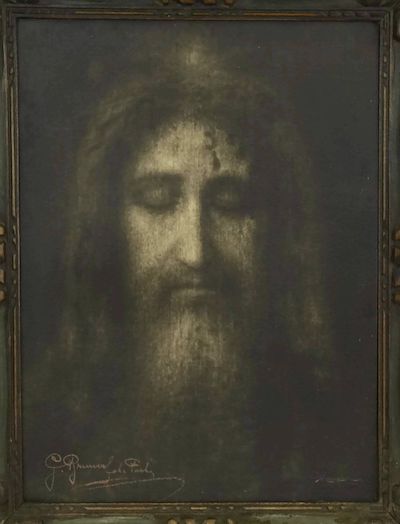
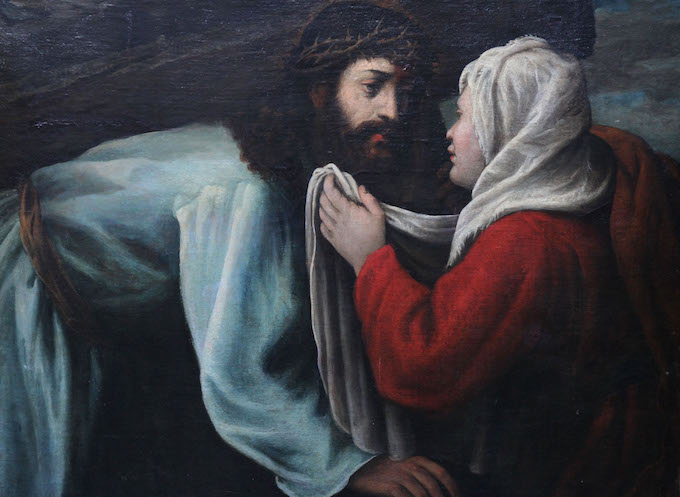
Prayer to the Holy Face in Gethsemane
by Annabelle Moseley
O Bleeding Face, O Face Divine,
with God’s true majesty You shine.
Despite your forehead streaked with earth,
we gaze at your infinite worth.
We see the blood and sweat that streaks
upon Your Face, to us it speaks.
We’re moved to wipe each falling tear.
O Bleeding Face, we will not fear.
Veronica once wiped Your Face
as You held up your cross. With grace,
that kind of saint please let us be
to You here in Gethsemane.
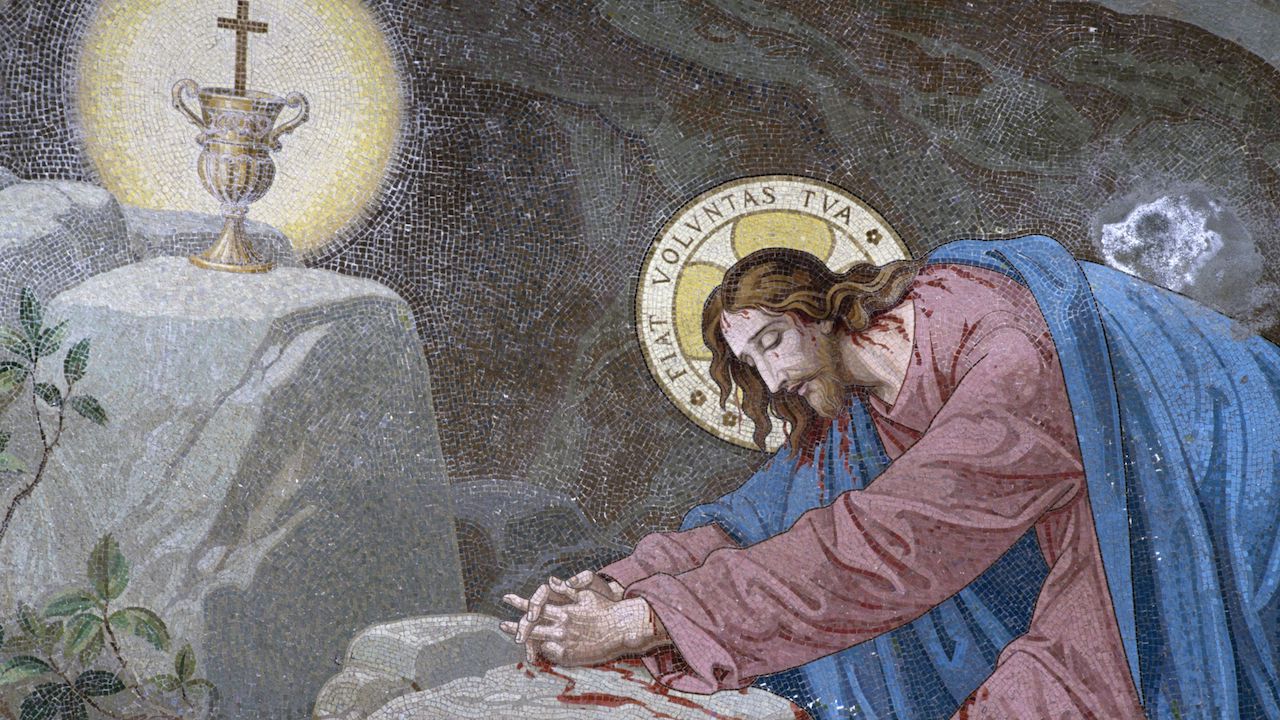
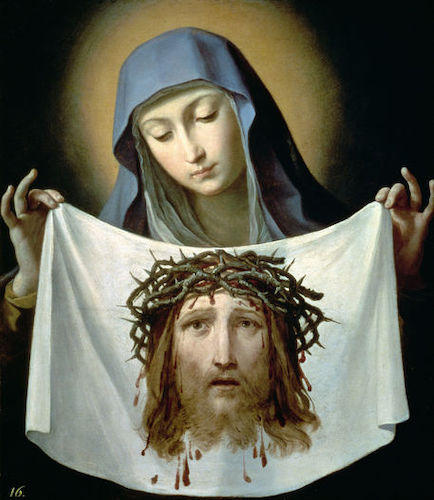
O Bleeding Face, O Face Divine,
with God’s true majesty You shine.
You’re prostrate on the Garden Ground,
The Pearl of Great Price we have found
You are the Holy Cornerstone.
O Bleeding Face, you’re not alone.
Though separated we may be
By years of time, we’ve heard your plea.
O Face Divine, in prayer we’re here
rending our hearts as we draw near
to watch and pray with love for You
O Bleeding Face, help us be true.

Our Garden Guide for the Third Week of Lent is: Pope Saint John Paul II
Pope Saint John Paul II was born Karol Jozef Wotylwa on May 18, 1920 in Poland. His youth was intrinsically shaped by the Nazi invasion of his homeland, which closed the university where he was in school and forced him to work hard jobs in order to avoid deportation, such as becoming a manual laborer in a limestone quarry. His beloved mother had died when he was eight and his brother and father both died by the time young Karol was twenty. Reflecting back on this agonizing time in his life years later he said, “I was not at my mother’s death, I was not at my brother’s death, I was not at my father’s death. At twenty, I had already lost all the people I loved.”
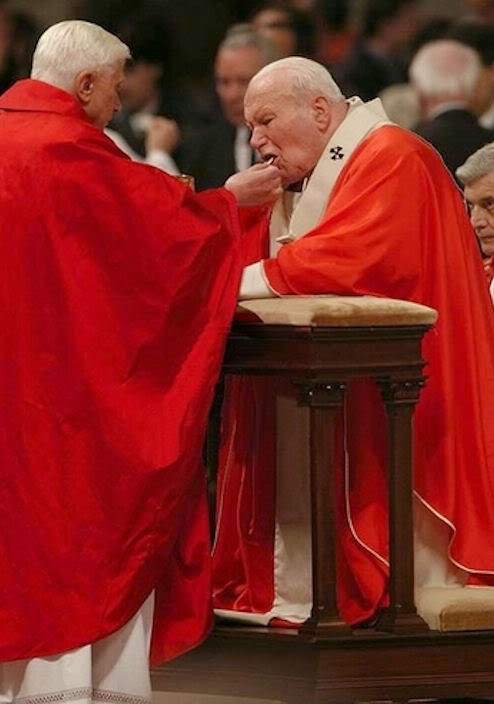
He became a priest on All Saints Day in 1946 and received his doctorate in 1947, writing his thesis on St. John of the Cross. Pope Saint John Paul II was a Third Order Carmelite. On July 4, 1958 he was appointed auxiliary bishop of Krakow. This brilliant young bishop spoke fifteen languages and loved to go kayaking. On October 16, 1978, he became Pope, one of the youngest in history. He was an avid sportsman and this energy led him to become one of the most energetic and well-traveled popes of all time. But in 2001, he was diagnosed with Parkinson’s Disease. Having survived two assassination attempts including one which severely injured him, his health now began to decline. No matter how badly he suffered, however, he still desired to show great reverence, humility and love and so insisted on kneeling before the Eucharist, asking aides to help him painstakingly do so.Pope Saint John Paul II died April 2, 2005. His last recorded words, spoken in Polish were, “Allow me to depart to the house of the Father.”
It is clear that Pope Saint John Paul II spent much time, spiritually, in Gethsemane.
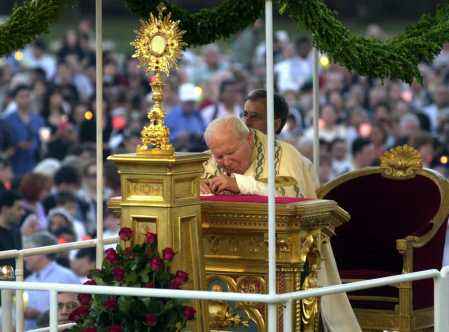
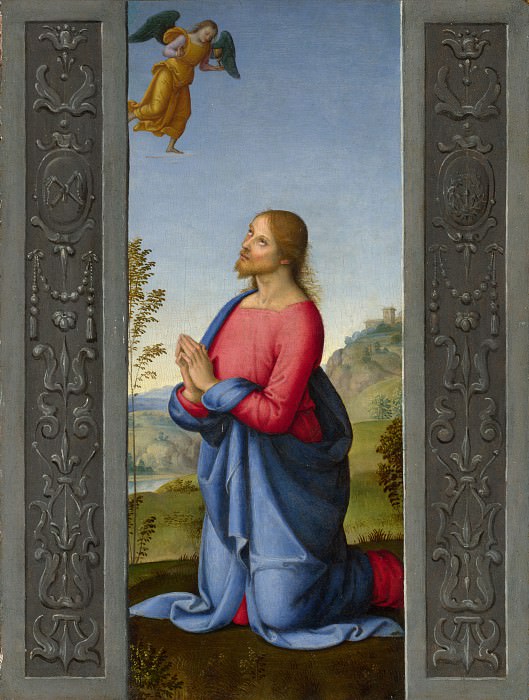
Reflection on the Meaning of Human Suffering, from “Salvifici doloris”
by Pope Saint John Paul II
The word, “My Father, if it be possible, let this cup pass from me; nevertheless, not as I will, but as you will,” and later: “My Father, if this cannot pass unless I drink it, your will be done,” have a manifold eloquence. They prove the truth of that love which the only-begotten Son gives to the Father in His obedience. At the same time, they attest to the truth of His suffering. The words of that prayer of Christ in Gethsemane prove the truth of love through the truth of suffering.
His words also attest to this unique and incomparable depth and intensity of suffering which only the man who is the only-begotten Son could experience; they attest to that depth and intensity which the prophetic words of Isaiah in their own way help us to understand. Not of course completely (for this we would have to penetrate the divine-human mystery of the subject), but at least they help us to understand that difference (and at the same time the similarity) which exists between every possible form of human suffering and the suffering of the God-man. Gethsemane is the place where precisely this suffering, in all the truth expressed by the prophet concerning the evil experienced in it, is revealed as it were definitively before the eyes of Christ’s soul.”

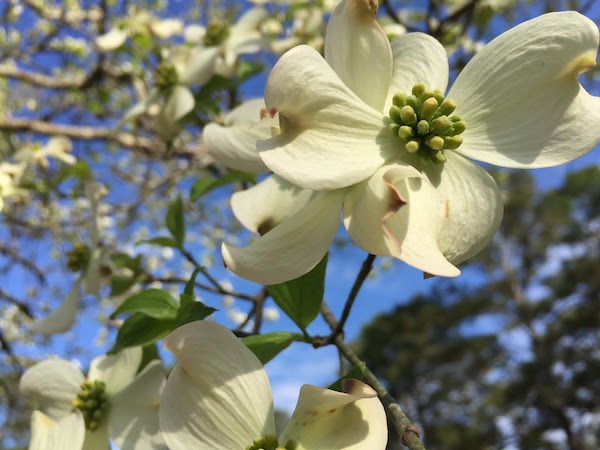
Reflection: The Wounds of Christ
by Annabelle Moseley
One day, when I was six, I walked hand-in-hand with my grandfather in his backyard, and as we descended a hill, we passed beneath the white and pink canopy of a flowering Dogwood tree. I reached up and picked a blossom off a low-hanging branch and began to twirl it.
“No, dear. You must never pick a Dogwood blossom,” my grandfather said. “The Dogwood flower bears the wounds of Christ.” He had me look more closely at what I’d seen as just a flower. Now, I could see the bloodstains on each petal, the crown of thorns at the center. I was struck at finding a reminder of Christ’s crucifixion in the beauty of nature. A message of the Father’s sacrificial love for us had been imprinted by Him on this tree, with the wounds of His Son in plain sight…yet easily missed to the casual glance. I vowed then and there to never pick the Dogwood’s blossom.


My mind vibrant with images from The Children’s Illustrated Picture Bible, I recognized that this was a discipline akin to the command God gave Adam and Eve regarding the Tree of the Knowledge of Good and Evil in His Garden. My grandfather, the one who had always tended the wounds and removed the splinters I’d gotten in his yard, had shown me our Garden’s untouchable fruit, and I, out of love, would obey.
Looking back, I see a poetic strand in my grandfather’s soul. Like Gerard Manley Hopkins, who saw the world “charged with the grandeur of God.” Dogwood Hill was no Mount Moriah or Mount Tabor, but I did learn a powerful lesson there all the same: a rule to see God’s handiwork in nature, to put God first even in the little things, and to love Him lavishly by resisting a fairly innocuous impulse to pick a pretty bloom. I had found a child’s way to live “not as I will but as Thou wilt” and to, even in little ways, try to do the Will of the Father.


Three years later, when my grandfather’s sickness came, and he suffered in the hospital, he was dressed all in pure white, a radiant white with the faded marks of his wounds showing through ever so slightly, a light pink in the bandages… like a Dogwood blossom. There he was, the man that tried and taught me to do the Will of God even in the little things, even in the flower he would not touch… there he was offering all of his pain up to God.
My grandmother asked him one day, “How are you able to undergo radiation each time so bravely?” His answer was brief, as he was being brought into treatment: “Isaiah.” So the secret was out… He found courage from the Book of the Prophet Isaiah.
“Behold, God is my saviour, I will deal confidently, and will not fear: O because the Lord is my strength, and my praise, and He is become my salvation.” Isaiah 12:2
It’s true, isn’t it, that the way we should offer ourselves to God’s Will is to “deal confidently” with Our Lord who is our strength.
And in Lent, we are called to do (and not do) certain things in order to please God, to do penance, to offer prayerful love to God with the choices we make. From the delicious cup of coffee we forgo as a penance, to the complaint we stifle… What is the “Dogwood blossom” you will not be touching this Lent in order to better do the Father’s Will?
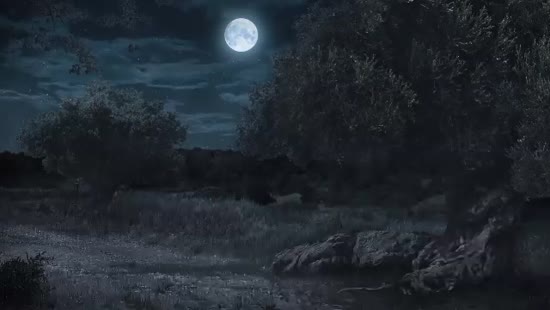
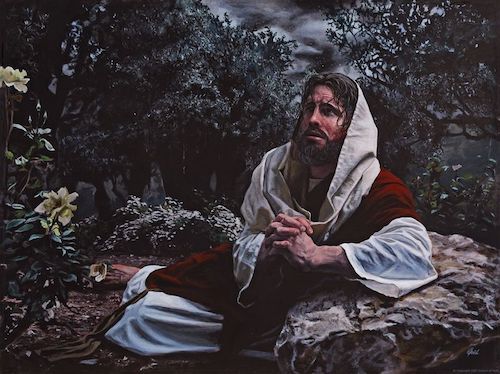

A Crown for Jesus in the Garden
Sonnet III of a Crown of Sonnets
from Awake with Christ, by Annabelle Moseley
The stars are crying eyes that burn and glow
above Your agony pressed on the ground.
You are abandoned in Your pain and woe.
And so, please grant that I may stay around—
For I’ve been lonely too. I’ve known the sleep
of friends I wished would stay awake with me.
I watch and pray with You. I am that sheep,
that one you left the other ones to free.
I stay here now for all the times I strayed.
I stay because of love. My Love; You’re hurt—
You fell down as You agonized and prayed—
and now Your face is stained with blood and dirt.
Your sweat and tears have mingled with the grass.
You ask the Father that this cup might pass.
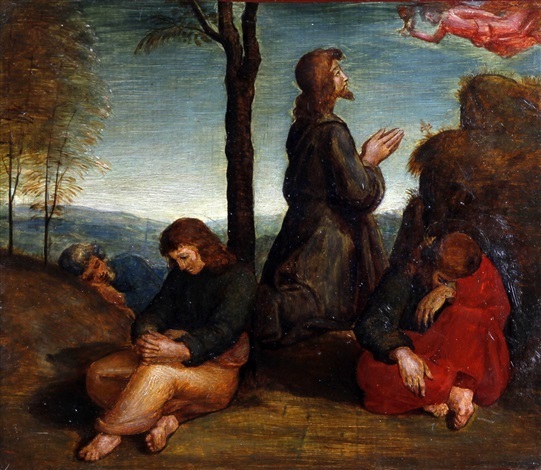
This Week’s Lenten Challenge: Not As I Will, But As You Will
How to do this:
- Sit in silent prayer and “listen with the ear of your heart.”
- Pick a verse from Scripture that gives you strength and comfort in hard times. Not sure where to start? Begin with the Book of Isaiah!
- Like not touching the Dogwood blossom, what small seemingly needless gesture of love… just to lavishly shower God with affection… can you make this week?
- Pray without ceasing this week. Make even your actions and works a prayer offered up to God’s will.
- Give alms to a charity from your need, not from your surplus. If you’d like a suggestion, here’s a worthy mission to help poor Catholic villagers in Sri Lanka rebuild their Church, which was destroyed during a hurricane.
- Make an examination of conscience to discern if you are doing God’s will instead of your own.
- Say an Act of Contrition nightly.
Invite a friend or loved one
We’re so glad you’re with us on this journey. Inviting someone else to draw close to Our Lord in Gethsemane, to watch and pray with Him there is a truly wonderful gift to give Our Lord this Lent. If you know someone you’d like to invite to join us for these Lenten Thursdays in the Garden, click here to invite them!
Help this apostolate grow – pick up a copy Awake with Christ as a Lenten Devotional for yourself and someone you love
Praise for Awake with Christ
…this book, truly a spiritual work of genius, helps place one on the narrow road to Heaven, a place of supernatural joy in both pleasant and painful times. You will be happy to stay awake with Jesus in this garden!” —Keith Berube, author of Mary the Beloved, Mary: The Rosary, the Relationship, and Dragons, and A Love Letter to Mary
